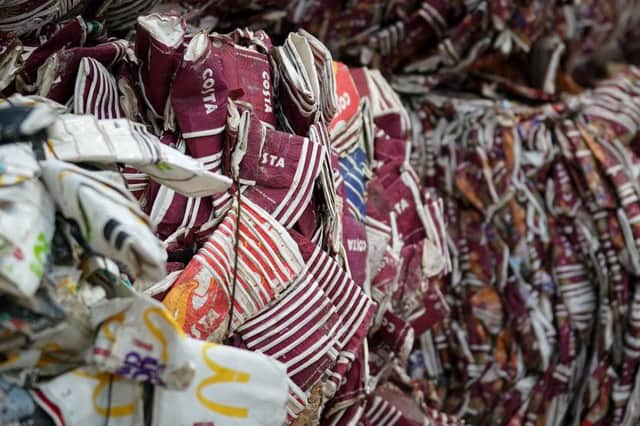Cup Movement can reduce use of throwaway containers – Catherine Gee


That’s how it is with the recent announcement by the Scottish Government that it will seek to introduce a charge on single-use cups. The move is in response to the report produced by the Government’s expert panel on environmental charging and other measures in the summer, recommending that the charge should be set at 20p subject to consultation.
Our unsustainable consumption of single-use cups is frightening and must change. Hundreds of millions of single-use cups are used every year in Scotland alone – almost a million cups a day used once then discarded. It is not just the litter and waste created, it is the carbon footprint of production and transportation too.
Advertisement
Hide AdAdvertisement
Hide AdThe proposed introduction of a charge is a big move by Government, one that is further welcome recognition that the pursuit of the UN’s Sustainable Development Goals and a net-zero future for the country are not going to fall into place without policy changes. Equally, the statement last week is also a welcome reminder that both industry innovation and personal behaviour are key to changing outcomes.
At Keep Scotland Beautiful, through our Cup Movement campaign in Glasgow, we have sought to demonstrate the combined role that industry has to improve recycling collection facilities and that of people who can achieve impact by changing personal behaviour.
This strategic intervention by our charity is seeking to highlight the difference that individual actions can make when collective action is taken to reduce consumption of the estimated 95 million cups used every year in Glasgow.
Our early evidence is that everyone really wants to be part of the solution, rather than part of the problem. We’ve found that 70 per cent of people in Glasgow want to recycle their single-use cup, but that only 12 per cent did so properly via dedicated cup collection facilities.
Partly that is about awareness, and the lack of appropriate infrastructure to allow recycling of items that are often part-plastic and part-paper. However, an encouraging sign is that the vast majority of people want to do the right thing.
We believe that our Cup Movement in Glasgow will help people make a difference. Through our lastest #TakeItBack initiative we are highlighting the 68 outlets across the city that will recycle any single-use cup received – hosted by our campaign partners Pret, McDonald’s, Costa and Starbucks.
Together we hope to change the situation so that more cups in the city are properly recycled. We’re being helped by Glasgow City Council which has adopted our campaign and is encouraging everyone using single-use cups on the go to #TakeItBack.
We hope to ensure that more and more people take the simple step of moving to a reusable cup – there are many who will #ChooseToReuse. In fact, this week we were out talking to Glasgow rail users and gave away more than 100 campaign “rCups” - reusable cups made from recycled single-use coffee cups – in exchange for a commitment to support our Cup Movement campaign objectives.
Advertisement
Hide AdAdvertisement
Hide AdThe announcement of a charge on single-use cups is welcome. It’s a recognition that choosing to consume a drink on the go has consequences for our environment.
We know that there is no single measure that will be successful on its own, whether it be a charge for a cup, improving recycling infrastructure, or encouraging more people to switch to reusable cups. This challenge requires everyone – industry, government, charity and individual – to work together and be part of the much-needed change to end this unsustainable behaviour.
Today is a good day to welcome this step by politicians, and decide, individually, to alter the way we consume takeaway drinks.
Catherine Gee, operations director, Keep Scotland Beautiful.